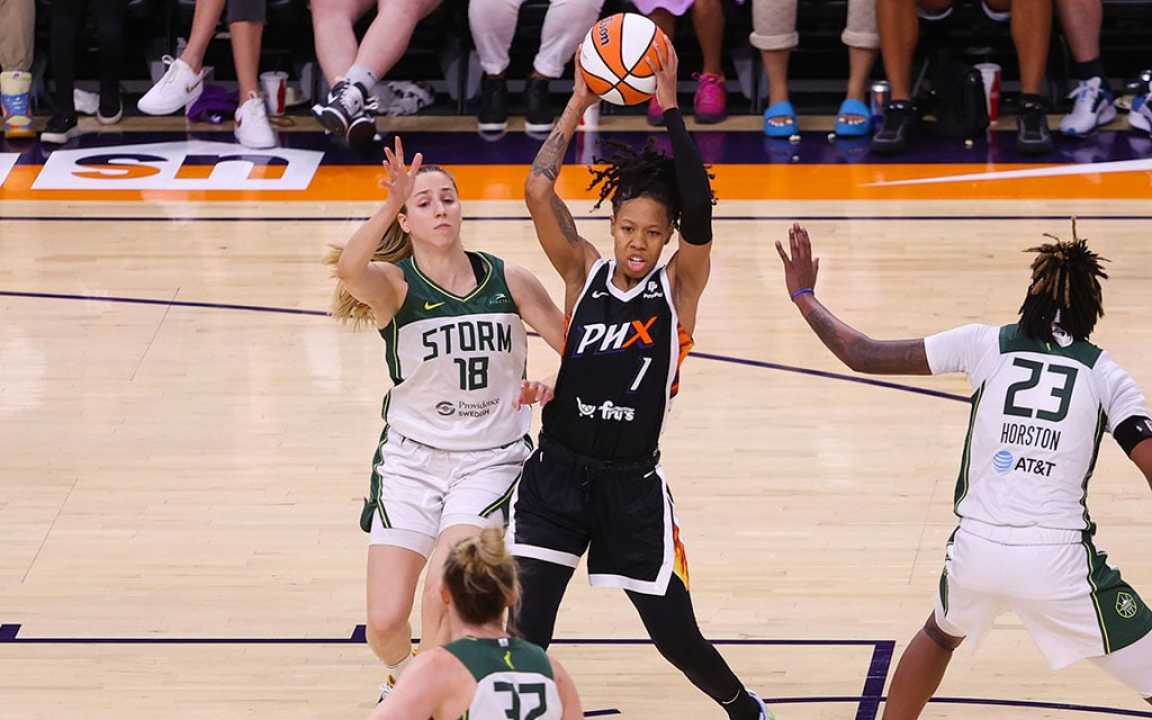Sports
Challenges Faced by WNBA Players on Minimum Contracts

PHOENIX – Players in the Women’s National Basketball Association (WNBA) are increasingly vocal about the challenges associated with minimum contracts. These contracts, which are significantly lower than those in the NBA, often lead to financial insecurity.
On June 27, forward Liz Dixon shared her struggles with living on a WNBA minimum contract, which at the time was worth $64,154. Just five days later, she was waived by the Phoenix Mercury, highlighting the precarious nature of her situation.
Dixon expressed her concerns about being replaced, stating, “You’re already paying me less than everybody else, but what if one day they don’t need you?” This sentiment is echoed by other players, including Natasha Mack and Mikiah Herbert-Harrigan, who have similarly faced uncertainty regarding their roles in the league.
Sug Sutton, now with the Washington Mystics after being traded in late August, articulated fears of financial instability which also affect her family. As she noted, “I try to provide for my family. So that can be tough when you’re getting a minimum salary with the WNBA.” This illustrates the wider impact of these contracts beyond just the players themselves.
While the WNBA plans to increase the minimum contract value to $70,103 by 2027, the disparity remains significant when compared to NBA salaries. NBA players with two years of experience earn approximately $2 million on minimum deals, which underscores the struggles faced by WNBA players.
Natasha Cloud, a veteran player, emphasized the need for the league to focus on the majority of players who work hard under minimum contracts. “This league is not the 1% of what you see on TV… this makeup is the majority of the middleman people,” she stated, calling attention to the minimum contract players who contribute significantly to the league.
Players like Sutton and Dixon utilize their circumstances as motivation to improve their game. Sutton remarked, “Being on the salary cap, it motivates me just to get better and to be where I want to be.” This mindset reflects a determination to rise above their current situations.
Despite the financial constraints, some players find ways to manage their expenses. Mack, who grew up below the poverty line, noted the importance of budgeting and being smart with money. “Thank God we don’t have to pay for rent. You don’t really have money to boast, so you learn how to be smart with it,” she explained.
Herbert-Harrigan, balancing motherhood with her basketball career, highlighted that many players seek additional income by playing overseas, where salaries can be significantly higher than in the WNBA. “The minimum, it’s tough,” she stated, pointing out the reality of making ends meet.












